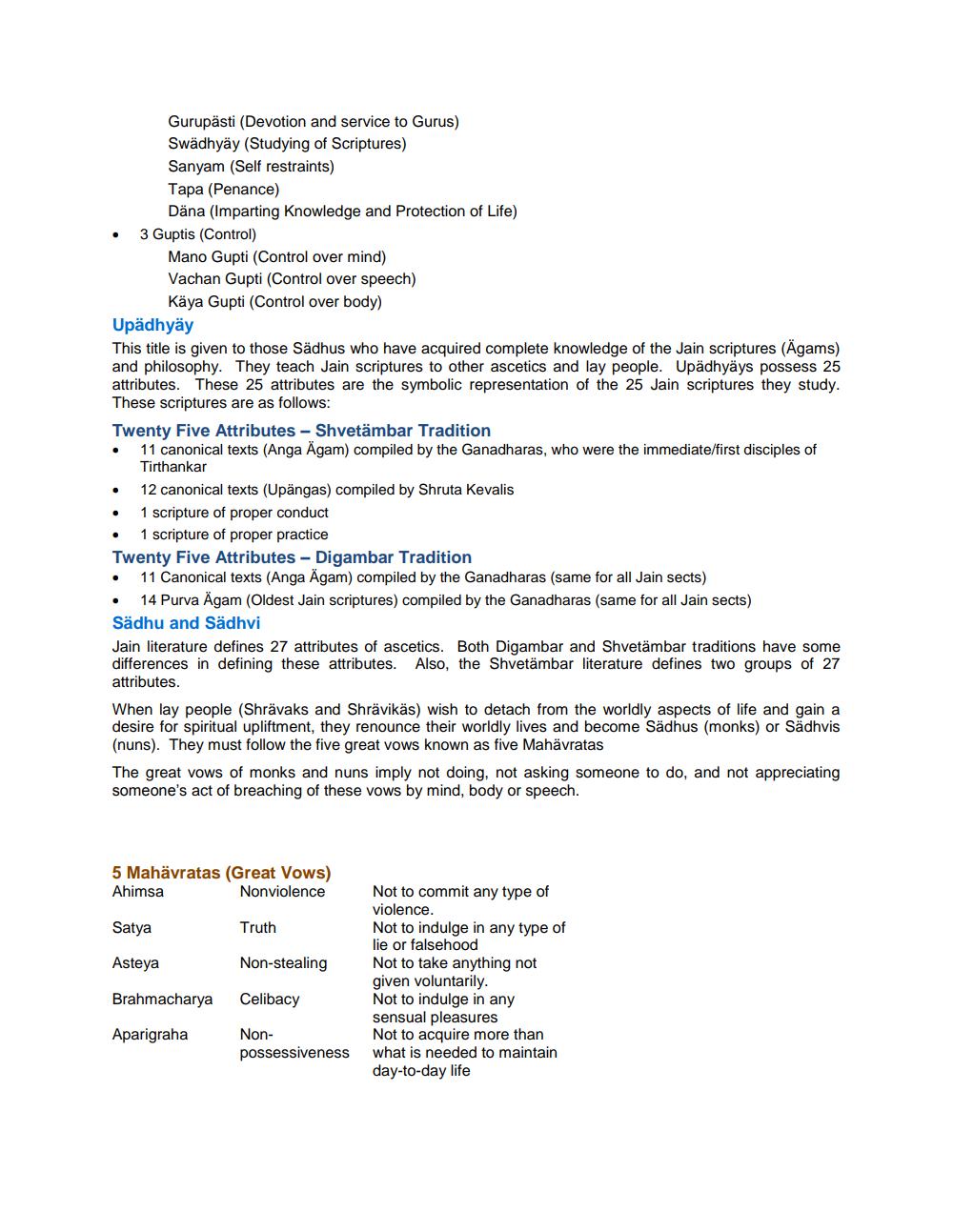Book Title: 108 Attributes of the Five Supreme Beings Author(s): Pravin K Shah Publisher: JAINA Education Committee View full book textPage 6
________________ Gurupästi (Devotion and service to Gurus) Swadhyay (Studying of Scriptures) Sanyam (Self restraints) Tapa (Penance) Däna (Imparting knowledge and Protection of Life) • 3 Guptis (Control) Mano Gupti (Control over mind) Vachan Gupti (Control over speech) Käya Gupti (Control over body) Upadhyay This title is given to those Sådhus who have acquired complete knowledge of the Jain scriptures (Agams) and philosophy. They teach Jain scriptures to other ascetics and lay people. Upadhyäys possess 25 attributes. These 25 attributes are the symbolic representation of the 25 Jain scriptures they study. These scriptures are as follows: Twenty Five Attributes - Shvetämbar Tradition • 11 canonical texts (Anga Agam) compiled by the Ganadharas, who were the immediate/first disciples of Tirthankar • 12 canonical texts (Upangas) compiled by Shruta Kevalis • 1 scripture of proper conduct • 1 scripture of proper practice Twenty Five Attributes - Digambar Tradition • 11 Canonical texts (Anga Agam) compiled by the Ganadharas (same for all Jain sects) • 14 Purva Agam (Oldest Jain scriptures) compiled by the Ganadharas (same for all Jain sects) Sädhu and Sädhvi Jain literature defines 27 attributes of ascetics. Both Digambar and Shvetämbar traditions have some differences in defining these attributes. Also, the Shvetämbar literature defines two groups of 27 attributes. When lay people (Shrävaks and Shrävikäs) wish to detach from the worldly aspects of life and gain a desire for spiritual upliftment, they renounce their worldly lives and become Sädhus (monks) or Sädhvis (nuns). They must follow the five great vows known as five Mahävratas The great vows of monks and nuns imply not doing, not asking someone to do, and not appreciating someone's act of breaching of these vows by mind, body or speech. 5 Mahävratas ( Great Vows) Ahimsa Nonviolence Satya Truth Asteya Non-stealing Not to commit any type of violence. Not to indulge in any type of lie or falsehood Not to take anything not given voluntarily. Not to indulge in any sensual pleasures Not to acquire more than what is needed to maintain day-to-day life Brahmacharya Celibacy Aparigraha NonpossessivenessPage Navigation
1 ... 4 5 6 7 8
